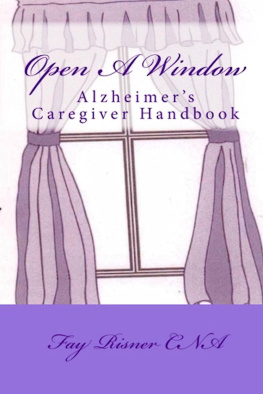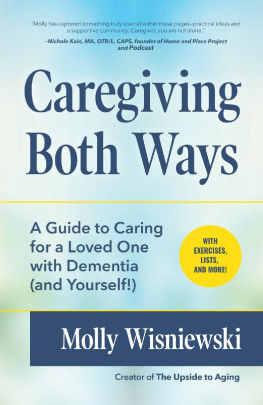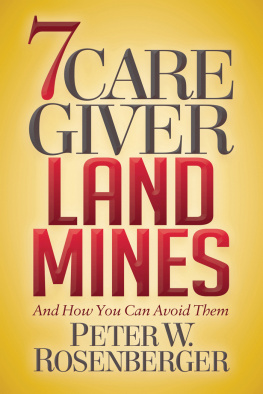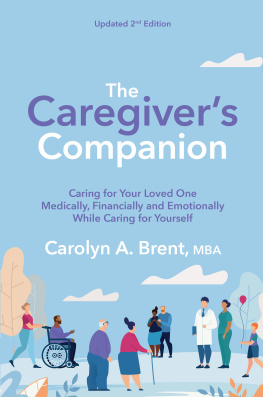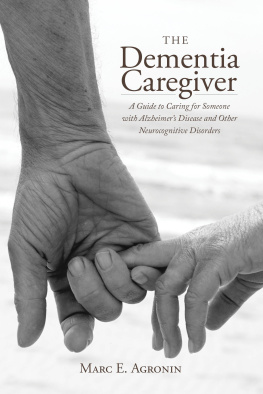BIBLIOGRAPHY
About. Al Emanski. Accessed July 14, 2018. http://aletmanski.com/about/#bio.
Active Aging Research Center. Center for Health Enhancement Studies (CHESS), University of Wisconsin. Accessed June 13, 2018. https://center.chess.wisc.edu/research-projects/view/active-aging-research-center.
Adam Kahane, Reos Partners. Accessed July 25, 2018. https://reospartners.com/reos-management/adam-kahane.
Afifi, Walid, and Masaki Matsunaga. Uncertainty Management Theories: Three Approaches to a Multifarious Process. In Engaging Theories in Interpersonal Communication, edited by Leslie Baxter and Dawn Braithwaite, 11732. Thousand Oaks, CA: Sage, 2008.
The Aging and Disability Resource Center of Southwest Wisconsin. Home Page. Accessed June 13, 2018. https://adrcswwi.org/.
Albrecht, Terrance, and Mara Adelman. Communicating Social Support. Thousand Oaks, CA: Sage, 1987.
Al-Mosaiwi, Mohammed, and Tom Johnstone. In an Absolute State: Elevated Use of Absolutist Words Is a Marker Specific to Anxiety, Depression, and Suicidal Ideation. Clinical Psychological Science 6, no. 4 (2018): 11924.
Alska Connected Caregiving. Accessed September 7, 2018. http://alska.com/.
Ansberry, Clare. America Is Running Out of Family Caregivers, Just When It Needs Them Most. Wall Street Journal, July 20, 2018. https://www.wsj.com/articles/america-is-running-out-of-family-caregivers-just-when-it-needs-them-most-1532094538.
Apker, Julie, Kathleen Propp, and Wendy Ford. Negotiating Status and Identity Tensions in Healthcare Team Interactions: An Exploration of Nurse Role Dialectics. Journal of Applied Communication Research 33, no. 2 (2005): 93115.
Ashforth, Blake, and Glen Kreiner. How Can You Do It?: Dirty Work and the Challenge of Constructing a Positive Identity. Academy of Management Review 24, no. 3 (1999): 41334.
Ashforth, Blake, Glen Kreiner, and Mel Fugate. All in a Days Work: Boundaries and Micro Role Transitions. Academy of Management Review 25, no. 3 (July 2000): 47291.
Asperger Syndrome: Partners & Family of Adults with ASD (Portland, OR). Meetup. Accessed July 12, 2018. https://www.meetup/Asperger-Syndrome-Partners-Family-of-Adults-with-ASD/.
Atlas of Caregiving: CareMap Tutorial. Accessed June 25, 2018. https://atlasofcaregiving.com/caremap-tutorial-2/
Atlas of Caregiving: Digital CareMapsHow to Draw. Accessed June 25, 2018. https://vimeo.com/261399102.
Atlas of Caregiving. Accessed June 25, 2018. https://atlasofcaregiving.com/.
Babrow, Austin, Chris Kasch, and Leigh Ford. The Many Meanings of Uncertainty in Illness: Toward a Systematic Accounting. Health Communication 10, no. 1 (1998): 123.
Bachner, Yaacov, and Sara Carmel. Open Communication between Caregivers and Terminally Ill Cancer Patients: The Role of Caregivers Characteristics and Situational Variables. Health Communication 24, no. 6 (2009): 52431.
Baxter, Leslie, and Dawn Braithwaite. Relational Dialectics Theory: Crafting Meaning from Competing Discourses. In Engaging Theories in Interpersonal Communication: Multiple Perspectives, edited by Leslie Baxter and Dawn Braith-waite, 34961. Los Angeles: Sage, 2008.
Best Buddies International. Best Buddies International. Accessed July 12, 2018. http://www.bestbuddies.org/.
Biettie, Lucas, Ottilie Tilston, and Adrian Bangerter. Storytelling as Adaptive Collective Sensemaking. Topics in Cognitive Science (2018), https://onlinelibrary.wiley.com/doi/full/10.1111/tops.12358.
Bodie, Graham, and Susanne Jones. The Nature of Supportive Listening II: The Role of Verbal Person Centeredness and Nonverbal Immediacy. Western Journal of Communication 76, no. 3 (2012): 25069.
Brody, Howard. Stories of Sickness, 2nd ed. Oxford: Oxford University Press, 2003.
Brooks, David. What Suffering Does. New York Times, April 7, 2014. https://www.nytimes.com/2014/04/08/opinion/brooks-what-suffering-does.html.
Bury, Michael. Chronic Illness as Biographical Disruption. Sociology of Health and Illness 4, no. 2 (July 1982): 16782.
Care Calendar Website, Lotsa Helping Hands. Accessed July 10, 2018. http://lotsahelpinghands.com/.
Caregiver Statistics. Caregiver Action Network. Accessed July 4, 2018. http://caregiveraction.org/resources/caregiver-statistics.
CareRelay the Caregiver Portal. CareRelay. Accessed September 7, 2018. http://carerelay.com.
CareZoneEasily Manage Multiple Medications and Health Information in One Place. Accessed July 10, 2018. https://carezone.come/home.
Caring across Generations. Accessed June 14, 2018. https://caringacross.org/why-care/.
Caughlin, John, Sylvia Mikucki-Enyart, Ashley Middleton, Anne Stone, and Laura Brown. Being Open without Talking about It: A Rhetorical/Normative Approach to Understanding Topic Avoidance in Families after a Lung Cancer Diagnosis. Communication Monographs 78, no. 4 (2011): 40936.
Charmaz, Kathy. Stories and Silences: Disclosures and Self in Chronic Illness. Qualitative Inquiry 8, no. 3 (2002): 30228.
. The Body, Identity, and Self: Adapting to Impairment. The Sociological Quarterly 36, no. 4 (1995): 65780.
Chun, Sanghee, and Youngkhill Lee. The Experience of Posttraumatic Growth for People with Spinal Cord Injury. Qualitative Health Research 18, no. 7 (August 2008): 87790.
Clark, Sue. Work/Family Border Theory: A New Theory of Work/Family Balance. Human Relations 53, no. 6 (2000): 74770.
Corbin, Juliet, and Anselm Strauss. Accompaniments of Chronic Illness: Changes in Body, Self, Biography, and Biographical Time. Research in the Sociology of Health Care 6 (1987): 24981.
Crouter, Ann. Spillover from Family to Work: The Neglected Side of the Work-Family Interface. Human Relations 37, no. 6 (June 1984): 42541.
DAgostino, Thomas, and Carma Bylund. Nonverbal Accommodation in Healthcare Communication. Health Communication 29, no. 6 (2014): 56373. https://www.ncbi.nlm.nih.gov/pmc/articles/PMC4939478/.
Dainton, Marianne, and Elaine Zelley. Social Exchange Theories: Interdependence and Equity. In Engaging Theories in Family Communication: Multiple Perspectives, edited by Dawn Braithwaite and Leslie Baxter, 24359. Los Angeles: Sage, 2006.
Entrevista Con Beatriz AngelesEl Impacto Del CareMap, Atlas of Caregiving. Accessed October 8, 2018, https://vimeo.com/256813229.
Farrell, Chris. The Shortage of Home Care Workers: Worse Than You Think. Forbes.com. April 18, 2018. Accessed June 14, 2018. https://www.forbes.com/sites/nextavenue/2018/04/18/the-shortage-of-home-care-workers-worse-than-you-think/#1193ad9c3ddd.
FIAO Brooklyn. Accessed July 12, 2018. http://www.fiaobrooklyn.org/community_services/social_services/.
A First Look at Communication Theory. Transcript of Em Griffins interview with Barnett Pearce, Creator of Coordinated Management of Meaning. Accessed August 1, 2018. https://www.afirstlook.com/docs/video-transcript-4.pdf.
Fisher, Walter. Human Communication as Narration: Toward a Philosophy of Reason, Value, and Action. Columbia: University of South Carolina Press, 1987.
Fox, Susannah, Maeve Duggan, and Kristen Purcell. Family Caregivers Are Wired for Health. Pew Research Center: Internet & Technology. June 30, 2013. http://www.pewinternet.org/2013/06/20/family-caregivers-are-wired-for-health/.
Frank, Arthur. The Wounded Storyteller: Body, Illness & Ethics, 2nd ed. Chicago: University of Chicago Press, 2013. Kindle e-book.
Galvin, Kathleen, Dawn Braithwaite, and Carma Bylund. Family Communication: Cohesion and Change, 9th ed. New York: Routledge, 2015.
Gibson, Gail, and Susan Reinhard. 2015 Report: Caregiving in the U.S. AARP and National Alliance for Caregiving (2015). https://www.aarp.org/content/dam/aarp/ppi/2015/caregiving-in-the-united-states-2015-report-revised.pdf.


